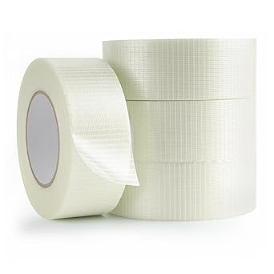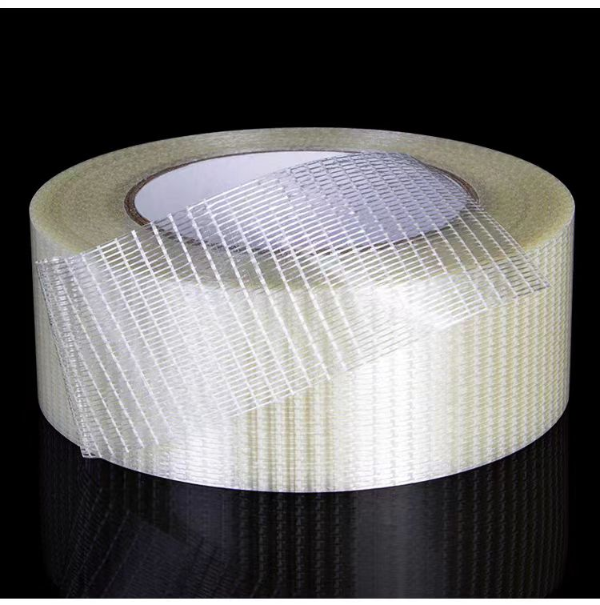
When you ship heavy items, every part matters. You might use strong cartons, stack them carefully, and plan logistics well. But if the tape gives out, your shipment could be in trouble. Regular packing tape looks good when you put it on. Yet, under stress, it can rip, lose stickiness, or let boxes burst open. For Seller, this means returns, damaged goods, and extra costs.
One company tackling this problem is QKD Tape. With deep know how in adhesive tech, they make a wide range of industrial tapes for logistics, construction, and heavy duty jobs. Their tapes are not just strong but also flexible, working well in tough settings like heat, dampness, vibrations, or long trips. They offer OEM and ODM customization, letting you pick tape sizes, materials, and packaging to match your industry needs. If you work in construction, packaging, or decoration, QKD Tape provides expert support and reliable products. It’s not just about selling tape, it’s about strengthening your supply chain to avoid losses from weak seals.
Why Does Regular Packing Tape Fail on Heavy Loads?
Most cartons for export or industrial use carry heavy stuff. Think furniture, steel parts, or big appliances. These put constant pressure on box flaps. Regular packing tape wasn’t made for this kind of strain.
Adhesive Weakness
Standard tape uses a single layer of glue. When weight or moisture hits, it loses its grip. The tape can peel off during shipping. This leaves cartons open and unprotected.
Lack of Reinforcement
Ordinary tape has no extra support. When a box gets heavy, the tape stretches and tears. Without added strength, it can’t handle long distance or cross border shipping.
What Are the Consequences of Tape Failure?
Tape breaking isn’t just a small hassle. For businesses, it causes big problems that go beyond a torn box.
Increased Shipping Damage
When tape fails, items shift inside the carton. For delicate or precise goods, this leads to scratches, cracks, or even total damage. Nobody wants that.
Higher Operational Costs
You’ll spend more on repacking, handling claims, and extra work. A logistics partner might reject poorly sealed boxes. This causes delays in delivery.
Negative Customer Experience
Picture a client getting a machine in loose packaging. Even if the product is fine, it looks sloppy. This hurts trust in your business.
How Can You Reinforce Cartons Effectively?
Fixing cartons takes more than just thicker tape. You need tape with strong pull resistance and solid sticking power in all directions.
Bidirectional Strength
Tapes with fiberglass threads woven both ways resist ripping side to side and up and down. This spreads force evenly. It keeps cartons much safer.
Strong Surface Bond
A tape that sticks well to PET or BOPP film stays flexible yet firm. This mix stops the tape from peeling off. It boosts holding strength.
Resistance to Abrasion and Impact
Heavy boxes face rough treatment. Forklifts, conveyor belts, and stacking cause friction. A tape that fights wear and sudden bumps helps goods stay safe through the supply chain.

Why Is Cross Fiberglass Tape a Better Solution?
The key difference between regular tape and Cross Fiberglass Tape is reinforcement. By mixing PET or BOPP backing with fiberglass threads, this tape offers much higher pull strength than standard sealing tapes.
Heavy Duty Sealing Power
It seals carton tops and bottoms tightly. Even with heavy stacking, boxes stay shut without splitting. This makes shipping safer.
Strapping and Securing
Cross Fiberglass Tape isn’t just for sealing. It also works for strapping. You can secure furniture panels, steel pipes, or machine parts without extra straps.
Adaptability in Harsh Conditions
This tape resists chemicals, water, and wear. It stays strong in sea shipments, damp warehouses, or long storage. That makes it super reliable.
If you need a trusty solution for tough jobs, explore Cross Fiberglass Tape. It’s a go to for industries moving heavy goods safely.
Where Can You Use Cross Fiberglass Tape?
This tape’s flexibility makes it a smart pick for many industries. It’s a great choice for procurement.
Logistics and Packaging
Use it for carton reinforcement, export shipping, or securing pallets. By cutting breakage risks, you lower claims and returns.
Building and Construction
On job sites, fiberglass tape seals seams, reinforces temporarily, or protects surfaces during transport. Its flexibility fits uneven materials well.
Heavy Industry
Marine, timber, and steel shipments need strong strapping. Cross Fiberglass Tape offers an easy, budget friendly way to secure goods without metal straps.
For decoration and surface projects, suppliers like QKD Tape also offer versions for indoor and outdoor use. These support contractors with steady performance.
How Does Customization Benefit Your Business?
OEM and ODM services let you tailor tape to your exact needs. This improves your operations.
Size and Dimension Flexibility
Different cartons need different tape widths. A wider tape adds strength without extra layers. This saves time when packing.
Branding and Private Labeling
Custom rolls can show your logo or packaging design. This is handy if you serve retail markets alongside industrial clients.
Formula Adjustments
Some industries need more water resistance. Others need impact resistance. With customization, you get tapes suited to your specific setting, not generic ones.
FAQ
Q1: Why does regular packing tape split under heavy loads?
A: Regular tape lacks reinforcement. Its glue weakens under pressure. This causes cartons to break open during shipping.
Q2: What makes Cross Fiberglass Tape stronger?
A: It uses PET or BOPP backing with fiberglass threads in both directions. This gives high pull strength and better sticking power.
Q3: Can Cross Fiberglass Tape replace strapping?
A: Yes. For shipments like timber, steel, or machinery, it works for both sealing and strapping.
Q4: Is fiberglass tape suitable for marine shipments?
A: Yes. It resists moisture, wear, and impact. This makes it reliable for sea transport.
Q5: How can businesses benefit from customized tape solutions?
A: OEM and ODM services offer custom sizes, branding, and glue formulas. These meet specific industry needs.
